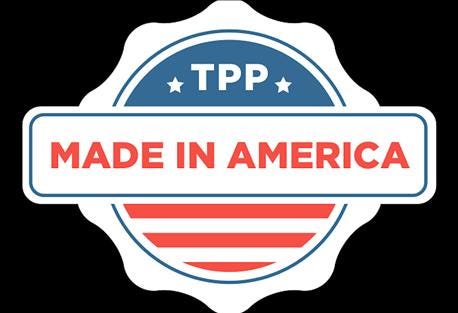
Chances of passage of Trans-Pacific Partnership continue to look grim as this week Senate Majority Leader Mitch McConnell, R-Ky., said he will not bring the bill up for a vote yet this year, but that there may be opportunities to “massage” the deal with a new administration.
The U.S. Trade Representative posted a “draft statement of administrative action” to its website which many had hoped would infuse new energy into efforts to ratify the flat-lining trade pact. The White House has not said when it will send the TPP implementing package to Congress.

The move established a 30-day minimum before the Administration can present the legislation, but the White House is unlikely to do so amid the heated rhetoric of a presidential campaign in which both major party nominees have negatively depicted TPP, the American Soybean Association said in a newsletter article.
A new poll from Morning Consult shows most voters favor fair trade – something all candidates should keep in mind as a congressional vote on the Trans-Pacific Partnership agreement comes closer to reality, the American Farm Bureau Federation said.
“Most Americans support free trade,” AFBF president Zippy Duvall said, “and most farmers do, too. Exports account for almost a quarter of American farm receipts, so opposing fair trade agreements like TPP doesn’t make a lot of sense to rural America.”
Among other things, the August poll found:
57% of registered voters have a favorable view of “fair trade.
50% said they would be more likely to support TPP if they knew it would provide new markets overseas for U.S. farm products.
After Americans were told TPP would increase net farm income by $4.4 billion and agricultural exports by $5.3 billion, 52% said they would be more likely to support TPP. More than half (51%) say an estimated increase of 40,100 jobs resulting from the agreement would make them more likely to support TPP.
52% of voters say they would be more likely to support TPP if they knew the deal would increase annual income in the U.S. by $131 billion.
69% of voters support trade policies that will open new markets for U.S. products and U.S. farmers while less than one in 10 (8%) oppose.
“Most trade deals start out with loud opposition, only to fade away once the details become known,” Duvall said. “We are convinced TPP is no different: The more people know, the more they will support this vitally important agreement.”
Secretary of Agriculture Tom Vilsack also used the latest trade numbers as another opportunity to call for passage of the TPP trade deal. “Such agreements are key to a stable and prosperous farm economy, helping boost global demand for U.S. farm and food products, increasing U.S. market share versus our competitors, and ensuring that our farmers and ranchers have stable and predictable markets for the quality goods they produce."
US credibility
The Wall Street Journal said this week that the troubled 12-nation TPP trade deal is threatening to become a foreign policy failure in Asia, where the U.S. loaded the accord with strategic significance as a counterweight to the rise of China.
U.S. officials have touted TPP as central to a shift of U.S. military and other resources to Asia. Now with opposition toward TPP mounting, the likelihood of ratifying the deal appears to be bleak. Some say, failure at this point in time, would seriously dent U.S. credibility. “For the simple reason that the U.S. invested so much in it, the deal acquired a kind of totalistic value that goes way beyond its economic merits,” said Euan Graham, a former U.K. foreign officer who now studies regional security. “To leave Asian partners hanging now would be disastrous for U.S. leadership in the region.”
The U.S pivot to Asia, unveiled in 2011, reflected concern about China’s bid to turn economic might into hard power in a region with growing importance. Tensions have risen, with China testing U.S. military dominance by making claims on the South China Sea and protesting a U.S. antimissile installation in South Korea.
The U.S. is deeply integrated with Asia through big trade relationships with China and other economies, as well as defense treaties with Japan, South Korea, and the Philippines. Asian leaders who spent political capital to support TPP may be less likely to do so again if it is not ratified, some experts say.
Smaller countries that balance relationships with both China and the U.S. may doubt the U.S. and become accommodating to Beijing. “Obama went around convincing countries to do things as part of an effort to show that we can stand up to China in some way,” said Yukon Hauang, a former World Bank chief for China and now a senior associate at the Carnegie Endowment for International Peace. “But now it if does not pass, they will take a much more skeptical approach.”
About the Author(s)
You May Also Like






